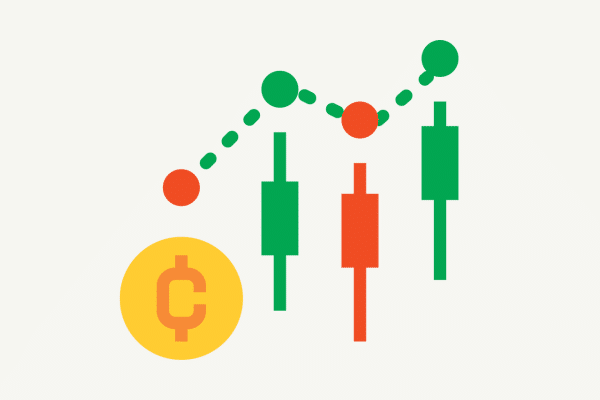Introduction
Cryptocurrency isn’t just about digital coins, trading platforms, or blockchain technology — it has also created its own unique language. From HODL to FOMO to moon, crypto slang and acronyms shape how traders, investors, and enthusiasts talk about the market. If you’re new, these words can sound confusing, almost like an inside joke you’re not part of.
Understanding crypto slang and acronyms is more than just learning new words. It helps you read market sentiment, follow discussions on platforms like Reddit, Twitter (X), and Telegram, and avoid costly mistakes that come from misunderstanding jargon. In this guide, we’ll break down the most important crypto terms, explain their origins, and show why they matter.
By the end, you’ll have a clear glossary of the most common crypto slang — making it easier to keep up with conversations, spot market trends, and navigate the fast-moving crypto world with confidence.
What Is Crypto Slang and Why Does It Matter?
Crypto slang is a collection of abbreviations, nicknames, and phrases that developed within online crypto communities to describe market behavior, emotions, and strategies. It simplifies communication in a fast-paced market where decisions are often driven by memes, hype, and emotions as much as by data.
For example, instead of saying “I’m not selling my Bitcoin despite the crash,” traders simply say “I’m HODLing.” This shorthand reflects the community’s culture while also saving time.
Why it matters:
- Helps beginners integrate into the community.
- Signals investor sentiment.
- Protects against scams.
The Most Common Crypto Slang and Acronyms Explained
HODL
HODL means “Hold On for Dear Life.” It originated from a drunken typo in a 2013 Bitcoin forum post titled “I AM HODLING.” The term became a philosophy: hold onto your crypto even during price drops, trusting in long-term growth.
FOMO (Fear of Missing Out)
FOMO describes the emotional rush of buying into a coin because you fear missing potential profits. It often leads to buying at peak prices and regretting later.
FUD (Fear, Uncertainty, Doubt)
FUD refers to negative rumors or news designed to spread fear and lower prices. Sometimes it’s genuine concern; other times it’s manipulation by competitors or large investors.
Whale
A whale is a person or entity holding huge amounts of a cryptocurrency. Their trades can influence prices significantly, causing waves in the market.
DYOR (Do Your Own Research)
DYOR is a common warning reminding traders to investigate projects before investing. It’s protection against scams and hype-driven coins.
To the Moon
“To the moon” expresses the belief that a coin’s value will skyrocket. Often used in memes, it reflects excitement during bull runs.
Rekt
Rekt is slang for “wrecked,” meaning suffering major financial losses. Example: “He bought at the top and got rekt.”
Pump and Dump
Pump and dump describes schemes where a coin’s price is artificially inflated (pumped) before insiders sell off (dump), leaving others with losses.
Sats (Satoshis)
Sats are the smallest unit of Bitcoin, named after its creator Satoshi Nakamoto. One Bitcoin equals 100 million sats.
Bagholder
A bagholder is someone stuck holding coins that lost most of their value. They keep waiting for a comeback that rarely happens.
Shill
Shilling means aggressively promoting a crypto project, often because the promoter has a hidden interest. Example: influencers shilling tokens for payment.
Other Useful Crypto Slang to Know
- Airdrop – Free tokens given out for promotional purposes.
- ATH (All-Time High) – The highest price a coin has reached.
- Bear Market – A period when prices are falling and pessimism dominates.
- Bull Market – A period of rising prices and optimism.
- Exit Scam – When developers abandon a project and steal investors’ funds.
- Paper Hands – Someone who sells quickly out of fear.
- Diamond Hands – Someone who holds despite extreme volatility.
- DeFi – Short for “Decentralized Finance,” apps that run without banks.
Common Questions Answered
What does HODL mean in crypto?
HODL means holding your crypto long-term instead of selling during downturns, believing in eventual growth.
What is the difference between FOMO and FUD?
FOMO is the urge to buy because of hype, while FUD is the fear-driven urge to sell because of negativity.
What does it mean to get rekt in crypto?
Getting rekt means losing significant money due to bad trades, scams, or crashes.
Are slang terms the same across all coins?
Mostly yes — HODL, FOMO, FUD apply across Bitcoin, Ethereum, and altcoins. Some communities invent unique slang too.
What slang should beginners focus on first?
Start with HODL, FOMO, FUD, DYOR, and whale — these cover the basics of behavior and strategy.
Practical Tips for Beginners Using Crypto Slang
- Don’t trade based only on slang. Just because a coin is “going to the moon” doesn’t mean it’s a good investment.
- Keep a personal glossary. Write down new acronyms you encounter to track your learning.
- Check context. Words like whale or shill can be positive or negative depending on use.
- Focus on DYOR. Research should always guide your decisions, not hype or memes.
Comparisons and Alternatives
Some crypto slang overlaps with stock market slang, but crypto terms are more meme-driven. For example, stock traders say bullish or bearish, while crypto adds humor and exaggeration with phrases like rekt or to the moon.
Compared to traditional finance, crypto slang builds stronger community identity — it’s not just language, it’s culture. That’s why forums, Discord servers, and meme pages thrive alongside trading platforms.
Conclusion
Crypto slang and acronyms aren’t just funny internet words — they are part of the culture and communication that defines the cryptocurrency world. From HODL to FUD to diamond hands, these terms capture the emotions, risks, and strategies that drive the market.
For beginners, learning these words is like getting the keys to understanding conversations, market psychology, and warning signs of scams. The crypto landscape may keep evolving, but the lessons behind these acronyms — patience, caution, and research — will always remain relevant.
If you want to thrive in this space, learn the language, but remember: slang is culture, not financial advice.

